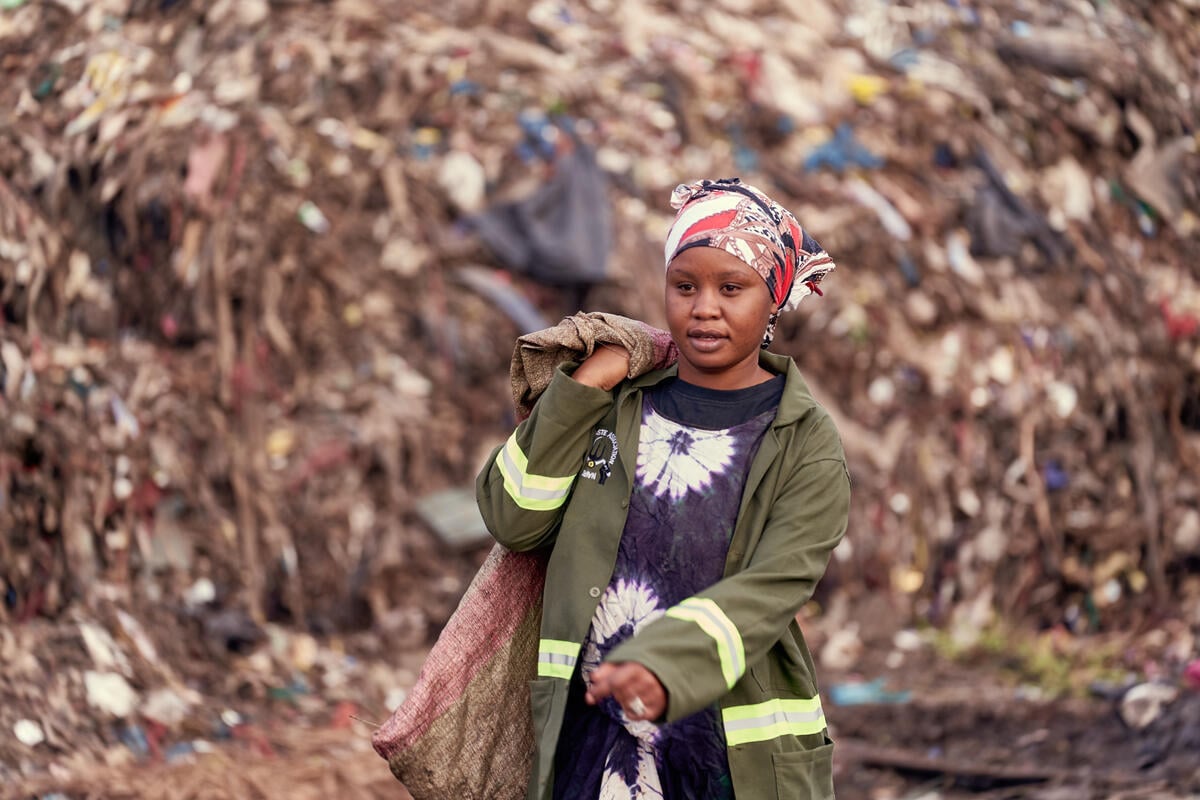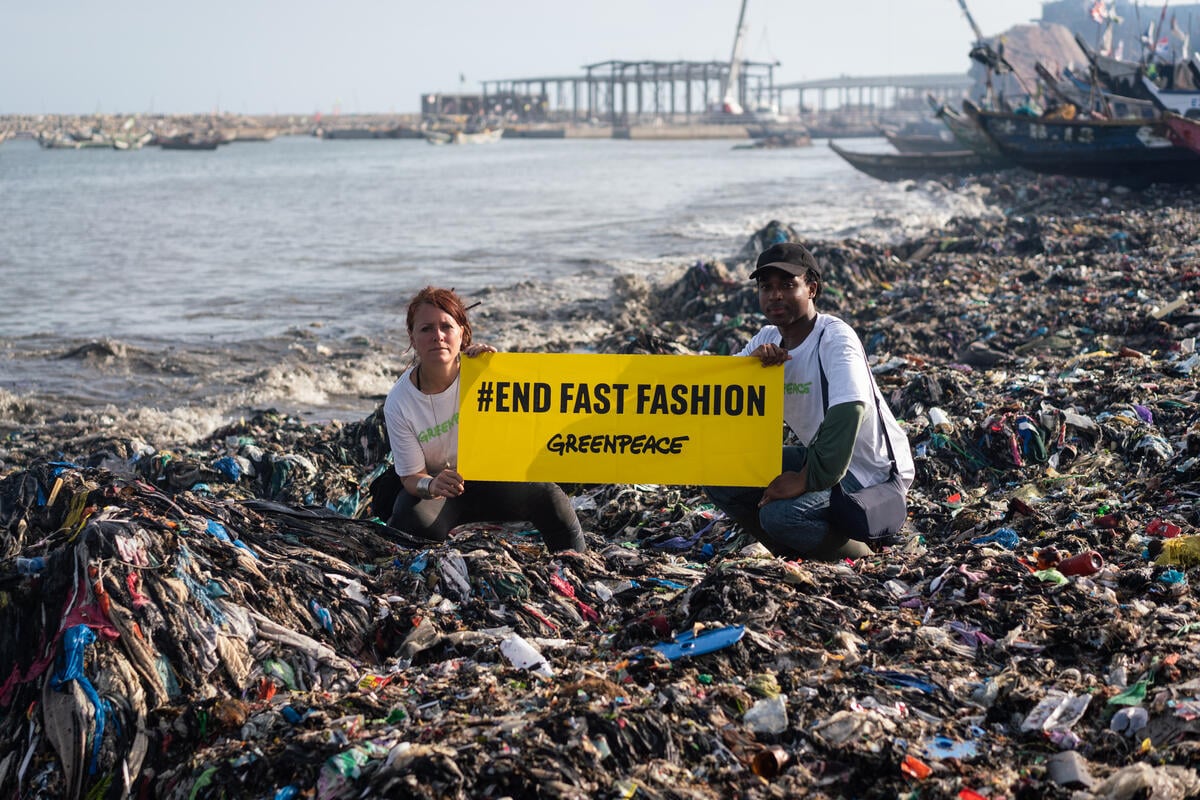Hamburg, 14 July 2017 – Tesco, one of the world’s largest retailers has today announced they will immediately begin the process of eliminating hazardous chemicals from the supply chain of their garment brand F&F, sold in 2,300 stores trading out of 23 different countries, and release a complete list of their suppliers.[1]
Together with Tesco, 80 international brands and suppliers have now committed to the Greenpeace Detox-Campaign to become toxics-free since the campaign began in 2011.[2] Detox-committed companies now represent 15 % of the worldwide textile production.
“The Detox standard is the new industry baseline – in only six years, forerunners of the textile sector went from total denial and opacity of their supply chain to transparency and the banning of all hazardous chemicals. Tesco’s commitment shows the rest of the industry that using hazardous chemicals is not an option anymore,” said Kirsten Brodde, Project Lead of Detox Campaign, with Greenpeace Germany.
UK-based Tesco today joins a group of five German-based international retailers including Aldi and Lidl that have signed the Detox-Commitment two years ago. The commitment coincides with the release of Greenpeace’s report “How seriously are retailers taking responsible fashion?”, the second assessment on how far retailers have implemented tools and actions to eliminate hazardous chemicals.[3] All companies have made good progress in their chemical management and transparency.
“Tesco now has the opportunity to match this progress and Greenpeace will monitor it closely to ensure they follow up their commitment,” said Brodde.
The Greenpeace Germany report also evaluates for the first time whether companies are challenging their high volume business model of cheap throwaway fashion via “slowing and closing the loop”; meaning measures that reduce the speed of changes in product lines and lead to a broader selection of long-lasting and recyclable garments and shoes. Reducing overall production and consumption would save precious natural resources and thus exceed singular measures such as chemical management or recycling-only. Measures need to involve product design, the use of sustainable materials, increased product lifetimes, recycling and communication with customers on sustainable consumption.
While four out of five companies have taken initial steps to implement take-back programs for used clothes, started integrating the use of organic cotton or piloting fully recyclable products; other strategies included in their commitments are still missing exact objectives. Only one of the assessed companies named, Tchibo, has developed a comprehensive product life cycle strategy from design till take-back, thereby laying the foundation for consumers to buy better, long-lasting products less often.
“Fashion brands and retailers should take measures to slow down their production and achieve full recyclability of their products equally serious than their chemical management. We need companies to foster a radical change in the way fashion is produced, marketed and consumed in the future, with warranties, repair services or sharing economy concepts, like leasing or lending. We believe Detox-committed brands could lead this change in the industry.” added Brodde.
ENDS
Photos: Detox my Fashion – Photocollection
Notes:
[1] Tesco’s Detox commitment + MRSL
[2] How seriously are retailers taking responsible fashion? Detox-Interim Report II (2017)
[3] Greenpeace Detox-Catwalk (2016)
Media contacts:
Lu Yen Roloff, Communications Lead, Greenpeace Germany: [email protected], +49 151 100 28 26 7



